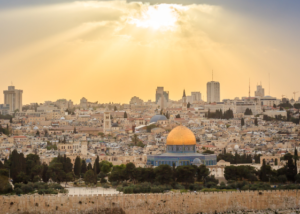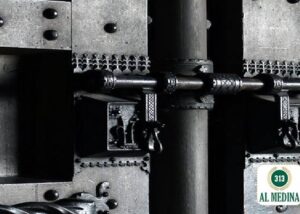Quran
Hadith
Islamic Text
بِسْمِ اللَّهِ الرَّحْمَنِ الرَّحِيمِ
In the Name of Allah, Most Merciful, Most Kind.
Short Answer
Yes, it is true that Allah (Most High) accepts all Duas in one of three ways. However, this is a general rule and there are exceptions to it.
Evidence
عَنْ أَبِي سَعِيدٍ، أَنَّ النَّبِيَّ صَلَّى اللهُ عَلَيْهِ وَسَلَّمَ قَالَ: ” مَا مِنْ مُسْلِمٍ يَدْعُو بِدَعْوَةٍ لَيْسَ فِيهَا إِثْمٌ، وَلَا قَطِيعَةُ رَحِمٍ، إِلَّا أَعْطَاهُ اللهُ بِهَا إِحْدَى ثَلَاثٍ: إِمَّا أَنْ تُعَجَّلَ لَهُ دَعْوَتُهُ، وَإِمَّا أَنْ يَدَّخِرَهَا لَهُ فِي الْآخِرَةِ، وَإِمَّا أَنْ يَصْرِفَ عَنْهُ مِنَ السُّوءِ مِثْلَهَا ” قَالُوا: إِذًا نُكْثِرُ، قَالَ: ” اللهُ أَكْثَرُ
Abu Sa’id al-Khudri (May Allah Most High be pleased with him) reported that the Prophet ﷺ said, “There is no Muslim that supplicates with a Dua that does not contain sin or the severing of kinship ties, except that Allah (Most High) gives him one of three things due to it. Either He is given what he asked for swiftly, or it is stored for him (as a reward) in the afterlife (Akhirah), or it is used to fend off equivalent harm from him.” They said, in that case we will increase (our supplication). He ﷺ replied, ‘Allah is more abundant (in bounty).’” (Musnad Ahmad, 11133).
Classification of this hadith:
رَوَاهُ أَحْمَدُ، وَأَبُو يَعْلَى بِنَحْوِهِ، وَالْبَزَّارُ، وَالطَّبَرَانِيُّ فِي الْأَوْسَطِ، وَرِجَالُ أَحْمَدَ وَأَبِي يَعْلَى وَأَحَدُ إِسْنَادَيِ الْبَزَّارِ رِجَالُهُ رِجَالُ الصَّحِيحِ غَيْرَ عَلِيِّ بْنِ عَلِيٍّ الرِّفَاعِيِّ، وَهُوَ ثِقَةٌ. (مجمع الزوائد ومنبع الفوائد).
It was narrated by (Imams) Ahmad, Abu Ya’la, al-Bazar and al-Tabarani in his al-Awsat. The narrators of (Imams) Ahmad, Abu Ya’la and one of the two chains of al-Bazar are the narrators of Sahih. Except for Ali bin Ali al-Rifai, who is reliable. (Imam al-Haythami, Majma al-Zawaid).
Explanation
The authentic Hadith above clarifies that Dua (supplication) is generally accepted by Allah (Most High). However, this does not mean that a person gets precisely what he asked for. Rather, their dua is accepted in one of three ways:
- Firstly, he gets what he asked for.
- Secondly, he is rewarded for it in the afterlife (Akhirah).
- Thirdly, it is used to fend off a calamity that was going to befall him.
This explanation found in the Hadith is incredibly important. This explanation clarifies a matter of fundamental importance. Even when supplications are accepted, it does not mean you get exactly what you asked for. If this were the case then life would no longer be a test. Whereas the Quran and Sunnah repeatedly affirm that life is a test.
Whenever a person faces a difficulty, if he could simply make Dua that it disappears, and have it accepted, then life would no longer be a test. Rather, sometimes one gets what he supplicates for and at other times the Dua is accepted in another manner. This is how supplications are accepted whilst life itself remains a test.
The Hadith mentions the general rule that Allah (Most High) accepts supplication. Yet, it does mention exceptions too. If one prays for something sinful then it will not be accepted. Elsewhere in Quran and Sunnah we find other exceptions. For example, the Dua (supplication) of a Kafir is generally rejected. Furthermore, the Dua of a person that also consumes Haram is not accepted.
And Allah Most High Knows Best.
–Answered by Shaykh Noorud-deen Rashid (10.04.23)






